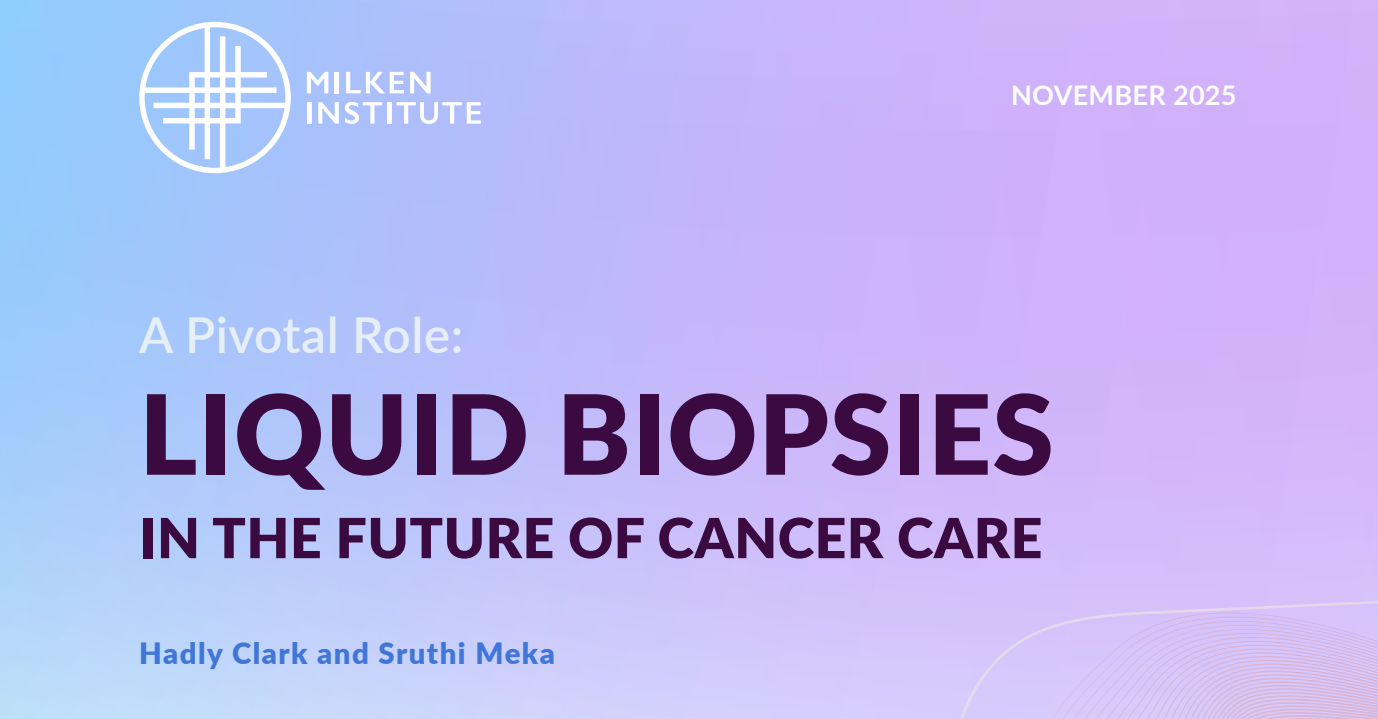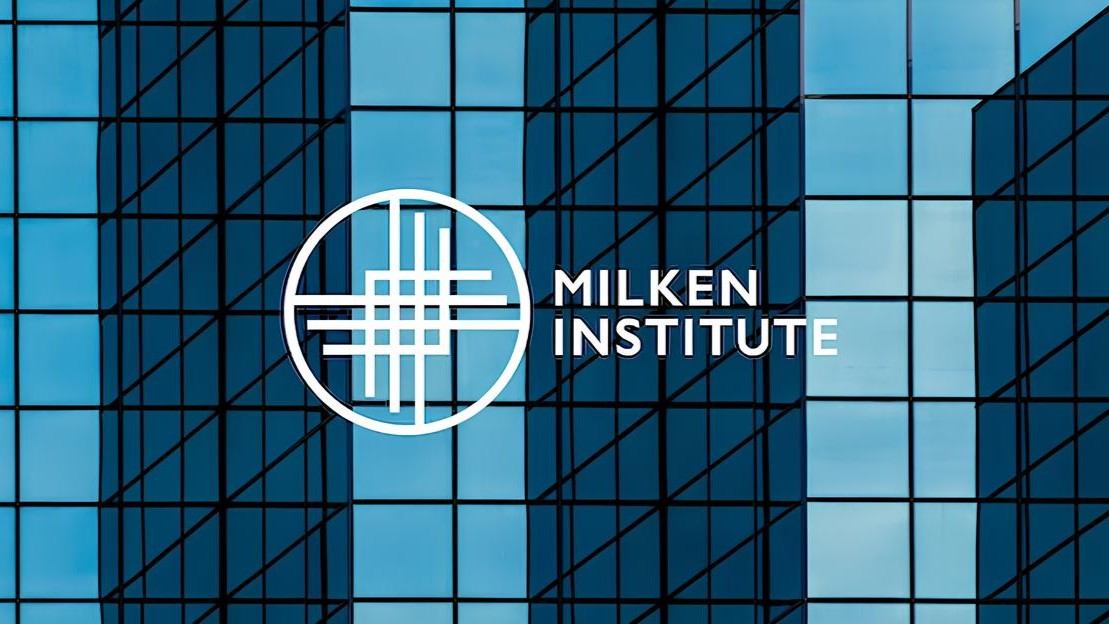As cancer cases surge past 2 million annually in the US, liquid biopsies have emerged as a new diagnostic frontier.
These noninvasive blood-based tests are revolutionizing how we detect, monitor, and treat cancer by delivering faster results, reducing patient burden, and personalizing care across the entire cancer care journey.
A new report from the Milken Institute’s FasterCures team, “A Pivotal Role: Liquid Biopsies in the Future of Cancer Care”, details how liquid biopsies are gaining traction through their ability to provide real-time monitoring, allowing for uniquely targeted treatment plans. With FDA-approved tests now available for colorectal cancer screening and growing Medicare coverage, the technology is poised to expand access over the next five years, especially for underserved populations.
“Cancer care is entering a new era. Despite decades of investment and remarkable breakthroughs, the disease continues to affect millions of people each year – and those numbers are rising. In the United States, new cancer cases are expected to top two million again in 2025, while globally, projections show 35 million new diagnoses by 2050. As incidence grows, so does the urgency for better ways to detect cancer earlier, monitor its progression, and guide treatment in a more personalized way.
In this first report in a two-part series, FasterCures explores how blood-based liquid biopsies are shaping the future of cancer care. We examine their promise to return results faster, reduce the physical and emotional toll of repeated biopsies and scans, lower treatment costs, expand access to screening for cancers that often go undetected until later stages, and pave the way for increasingly personalized care. We also highlight colorectal cancer as an example of how liquid biopsies are already being used across the continuum of care – from screening to treatment selection and post-surgical monitoring.”

You can find more posts featuring the Milken Institute on OncoDaily.


